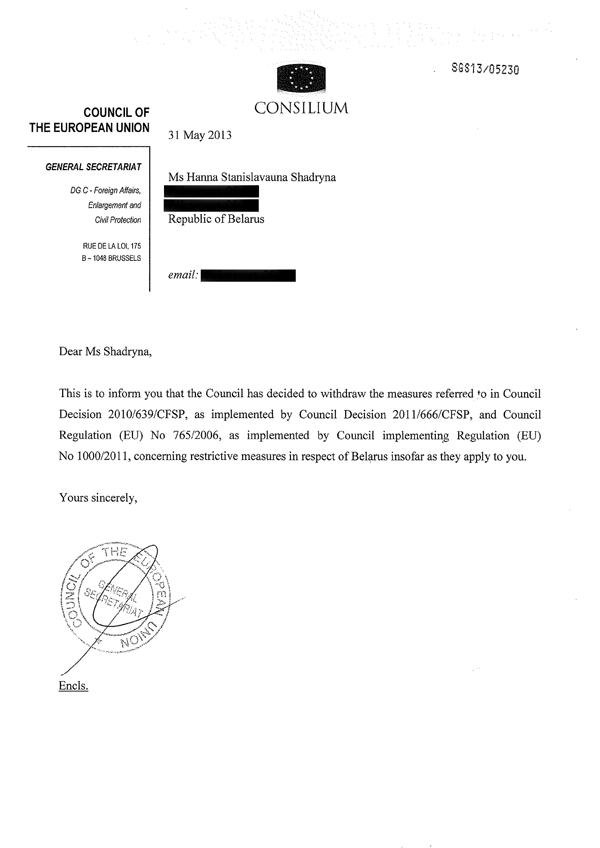Former deputy editor Hanna Shchadryna out of EU black list
The European Union has also withdrawn sanctions against two Belarusian companies - Akvadiv and Sport-Pari.
As Euroradio has learnt, on May 29 the official publication of the European Union shortened the list of the Belarusian officials banned from entering the EU member states by one person. "All restrictions withdrawn" from the former deputy editor of the newspaper "SB Belarus Today" Hanna Shadryna.
At the moment of composing the EU's black list Hanna Shadryna lo longer worked for the presidential newspaper - she resigned voluntarily. She used to head the department of culture and letters in the newspaper. In 2011, she corresponded with the EU structures as she disagreed with the formulations due to which she found herself in the black list. The correspondence ended in nothing then.
Hanna didn't appeal against the EU's decision to court. She worked in gender studies during these two years and wrote a book called "Not Married: Sex, Love and Family outside Marriage".
The same official publication of the EU informs that two Belarusian companies are now free from limitations - the alcohol plant "Akvadiv" (under sanctions since March 23, 2012) and "Sport-Pari" (since June 2011).
According to Maja Kocijancic, the spokesperson for Catherine Ashton, High Representative of the European Union for Foreign Affairs and Security Policy, this decision was taken with practically no discussion as all the countries-members of the EU agreed on the Belarusian issue.
Euroradio: Why did the ministers decide to exclude one person and two companies from the "black list"?
Maja Kocijancic: The Council of the EU systematically revises the legal act that concern the Belarusian officials and companies. Now it was decided that there were no more grounds to keep this person and two companies under the sanctions. We took this decision in the framework of our common policy. It is important to underline that the changes in the black lists do not mean changes in the policy with regard to Belarus.
Euroradio: What influenced the decision of the Council?
Maja Kocijancic: I can only tell you that the Council decided there were no more grounds.
Euroradio: Why wasn't the Belarusian issue on the official agenda of the Ministers' meeting?
Maja Kocijancic: The point is, usually we publish the list of issues under which there are some disagreements, so the Ministers will discuss them. These are issues that demand a serous political discussion. However, the Ministers take a number of decisions with no discussion every session of the Council. They concern non-problematic issues on which the countries agree. The Council just adopts them formally, and they are prepared several weeks before the meeting.

The political decision on visa and economic sanctions against Belarus was adopted by the Council of the EU on January 31, 2011 in Brussels, where the EU foreign ministers approved a list of Belarusian officials responsible for human rights violations during the presidential campaign. These persons are not allowed to visit the territory of the EU, and their accounts and property in EU countries should be frozen.

















